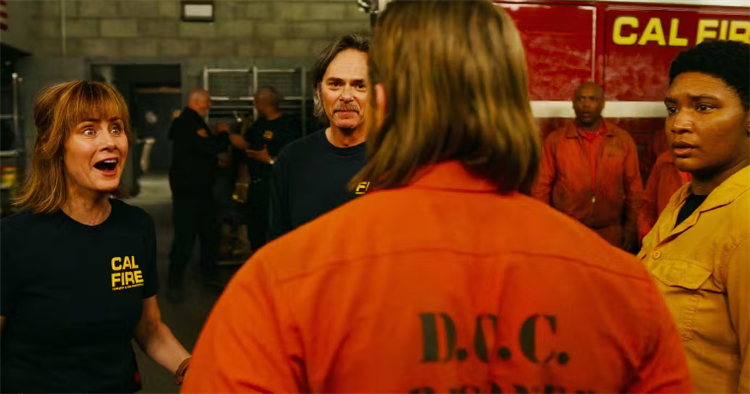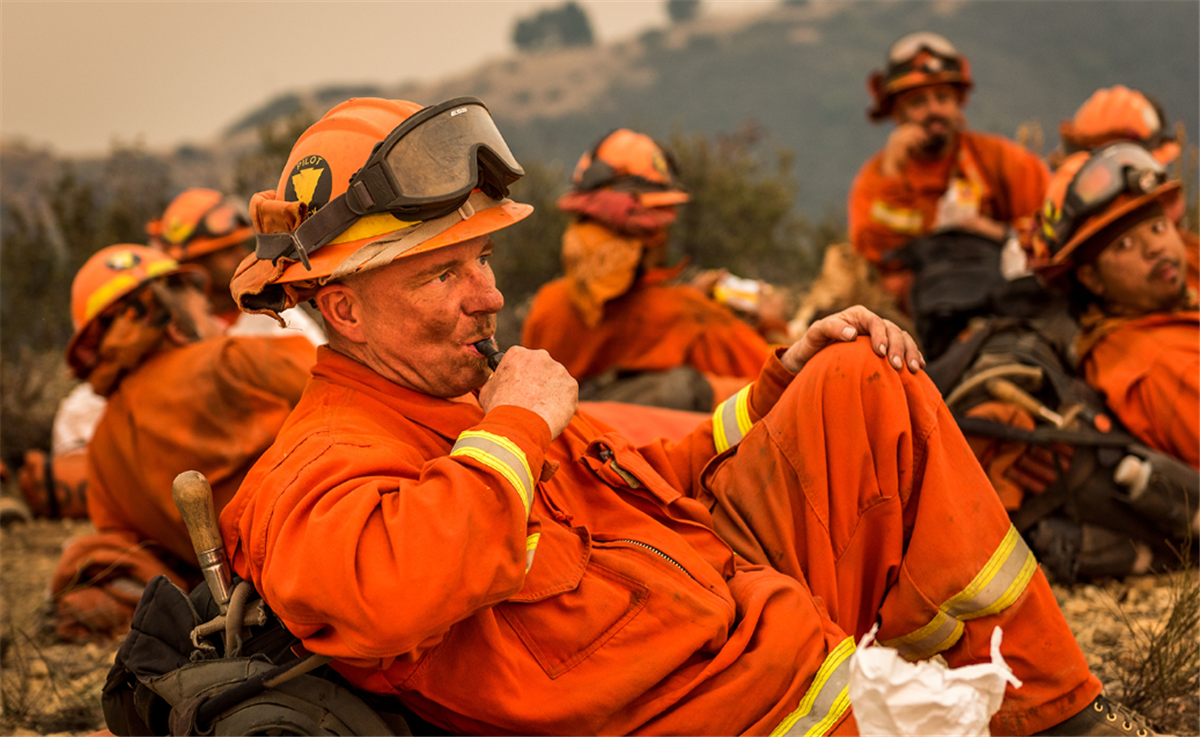Fire Country is based on a real-world issue, and actually portrays real challenges for prison inmate firefighters. The 2022 action-drama series centers on Bode Donovan, a man serving a five-year prison sentence but is determined to redeem himself. Offered a rare opportunity, Bode joins a special prison-release program that will commute the remainder of his sentence if he works with firefighters in Northern California. What begins as a chance for redemption turns into a confrontation with his past when Bode is assigned to his hometown. Yet, alongside the imaginary drama, Fire Country also highlights a real-life story.
The CBS series explores the many obstacles, hopes, and complexities of prison inmate firefighters. Fire Country’s season 2 finale perfectly set up several possibilities for the next season. Now, after two seasons, Bode’s journey is slated to continue in Fire Country season 3. The fact that the show’s narrative is based on a real premise gives the drama more heft and higher stakes. Bode’s story reflects a much larger reality for incarcerated people in the US and how inmate firefighter programs can be a source of restoration, growth, and redemption for many people.
Fire Country’s Prison Inmate Firefighter Programs Are A Real Thing
They Began During The Second World War And Continue To This Day

The prison inmate firefighter programs depicted in Fire Country reflect a real phenomenon. According to the California Department of Corrections and Rehabilitation (CDCR), the main purpose of the Conservation (Fire) Camp Program is “to support state, local and federal government agencies as they respond to emergencies including fires, floods, and other natural disasters.” The CDCR began the Conservation (Fire) Camp Program to “provide able-bodied incarcerated people the opportunity to work on meaningful projects throughout the state.” The 41 “interim camps” established to compensate for the depleted workforce during World War Two form the foundation of this system today.
In 2023…there were reportedly over 7,000 wildfires across the state, requiring a total of nearly 600,000 emergency responses and burning more than 300,000 acres of land.
Recently, California has been facing several wildfires. In 2023, for instance, there were reportedly over 7,000 wildfires across the state, requiring a total of nearly 600,000 emergency responses and burning more than 300,000 acres of land, as per government data. Inmate firefighters play a crucial role in wildfire containment by performing the “dirty work” necessary to combat the flames (via Davis Political Review). They create fire breaks, clear vegetation, and spend weeks on the front lines of wildfires, facing significant dangers (per Vera). They earn between $2.90 and $5 a day and have historically made up about one-third of California’s firefighting force (via The Atlantic).
Former Prison Inmate Firefighters Have Had A Hard Time Becoming Professional Firefighters
They Face Several Bureaucratic Hurdles
Inmate firefighters face significant obstacles in securing jobs after their release. Despite gaining valuable experience and skills while fighting fires for minimal pay, they encounter legal and institutional barriers that hinder their employment prospects. As reported by KQED, state law prohibits individuals with felony convictions from obtaining the necessary Emergency Medical Technician (EMT) certifications required by many firefighting jobs, effectively barring them from these positions. Additionally, they lack union representation and job protection, making their work conditions less secure compared to regular firefighters.
Advocacy groups and some politicians are pushing for legislative changes to address these issues (via AP News). They argue that if inmates can risk their lives fighting fires during their sentences, they should be allowed to continue this work upon release. Although state officials have developed a firefighter training and certification program aimed at helping former inmates, these efforts are relatively new, and their impact is still unfolding. This is a wider issue that Fire Country season 3 will likely explore in more depth.
In 2020 California Finally Made It Easier For Inmate Firefighters To Become Professional Firefighters
The New Law Allows Former Inmates To Have Their Records Expunged For Their Firefighting Service
In 2020, California Governor Gavin Newsom signed a law enabling inmate firefighters to become professional firefighters after their release from prison (via CNN). This legislation allows former inmates to have their records expunged and their parole waived due to their firefighting service. Newsom posted that those who have bravely fought historic fires should not be denied the opportunity to pursue a professional firefighting career. He further emphasized to CNN that the law provides thousands of inmate firefighters with hope and opportunity, calling them “heroic.”
CA’s inmate firefighter program is decades-old and has long needed reform.
Inmates who have stood on the frontlines, battling historic fires should not be denied the right to later become a professional firefighter.
Today, I signed #AB2147 that will fix that. pic.twitter.com/15GJ7Gijt7
— Gavin Newsom (@GavinNewsom) September 11, 2020
Eloise Gomez Reyes, the Democratic sponsor of the legislation, also highlighted that the measure is about giving second chances. “To correct is to right a wrong; to rehabilitate is to restore,” she said, as reported by CNN, continuing, “Rehabilitation without strategies to ensure the formerly incarcerated have a career is a pathway to recidivism. We must get serious about providing pathways for those that show the determination to turn their lives around.” This is the larger theme at the heart of Fire Country.
